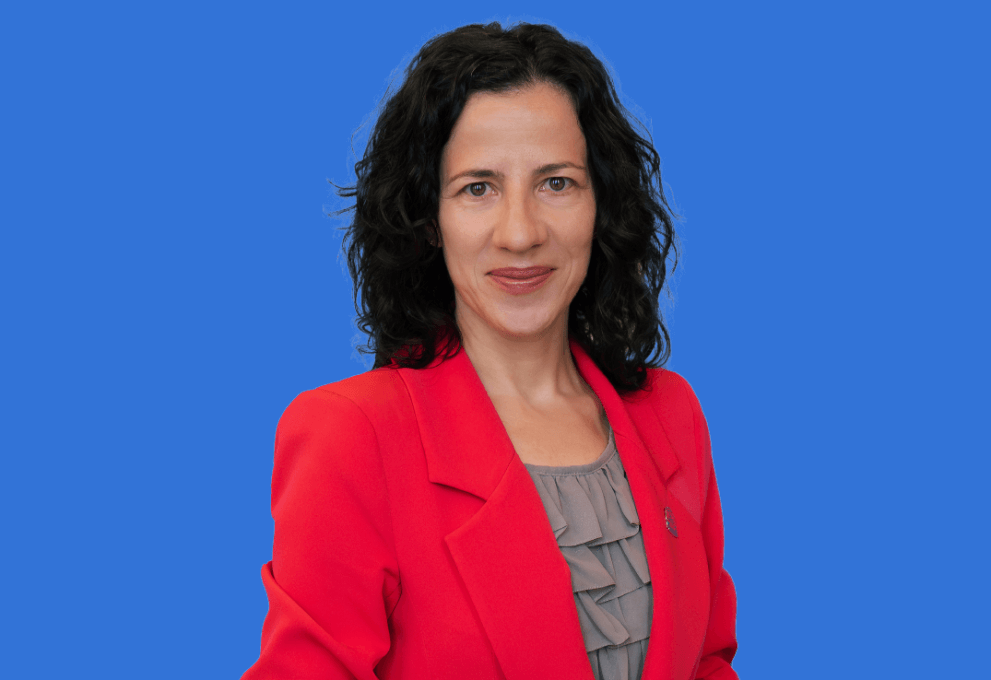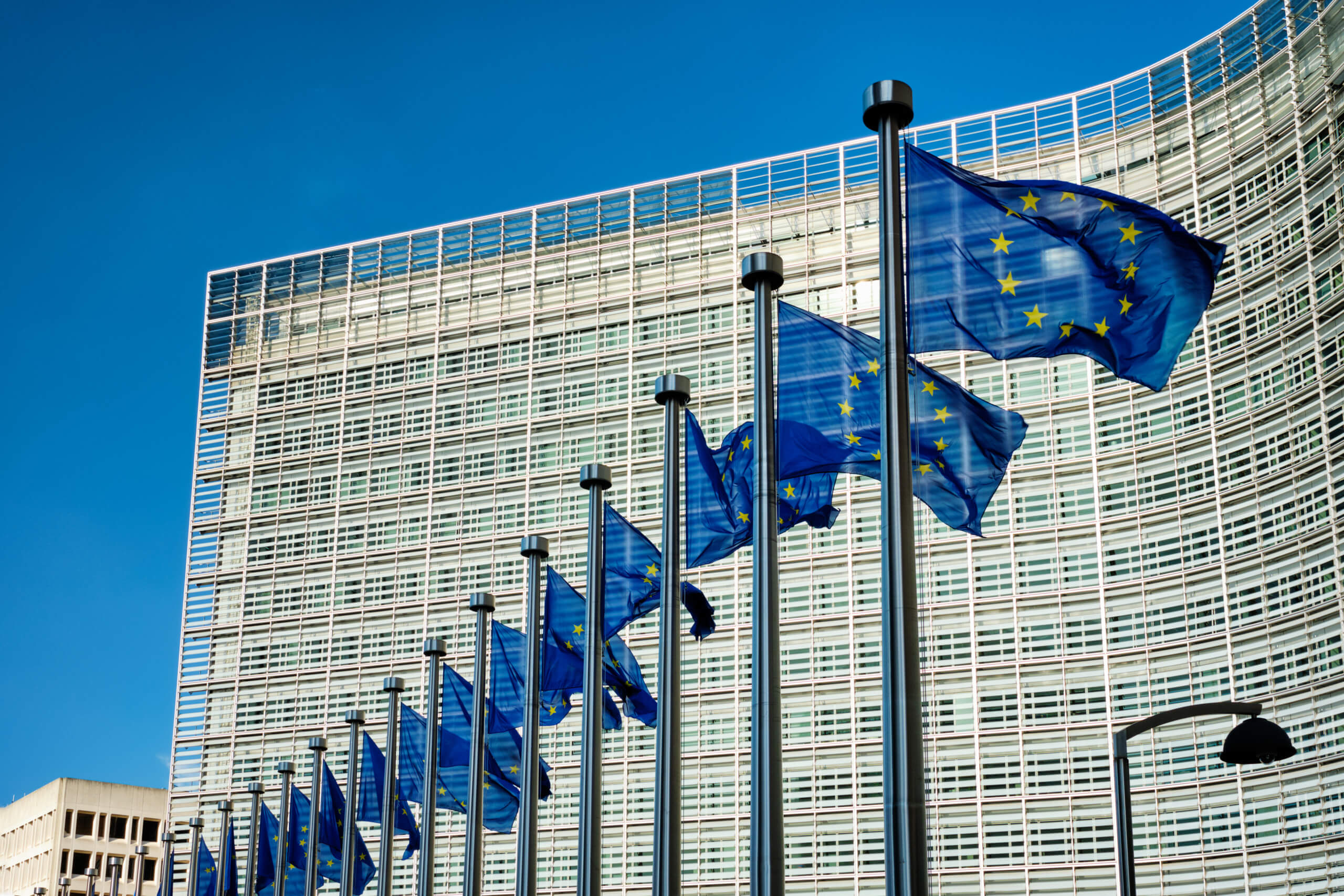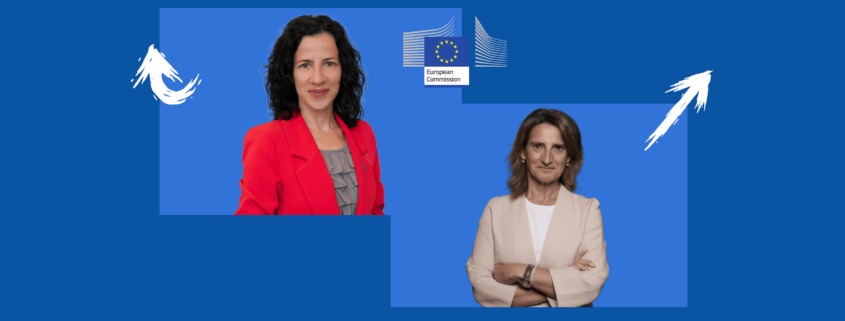Newly appointed Commissioners bring an optimistic outlook for social dialogue
Who are the most interesting newly appointed European Commissioners for leaders and managers? We bring some of the critical priorities and highlights of the week, with Ursula Von Der Leyen‘s new European Commission on its way to being fully constituted.
Remarkably, CEC European Managers showcases the recent appointments of Teresa Ribera Rodríguez from Spain and Roxana Mînzatu from Romania as EU Commissioners.
Both new EU Commissioners are a renewed focus on social rights, sustainability, and economic competitiveness under the new European Commission led by Ursula von der Leyen.
These appointments are exciting to professional leaders, managers, and the rest of the social partners, including member organisations and sectorial federations represented at CEC European Managers.
European managers can engage with these Commissioners’ strategic portfolios and help shape policies that align with our members’ interests, such as those addressing the ongoing shortage of skills, the implementation of Artificial Intelligence, competitiveness, and other social affairs.
Both Ribera and Mînzatu belong to the Socialists & Democrats (S&D) political group, and their roles provide an optimistic outlook for social dialogue and the full implementation of the EU Pillar of Social Rights.

Roxana Mînzatu, former Minister of European Funds in Romania
These are the key responsibilities of the new strategic Commissioners
Roxana Mînzatu, as Commissioner for People, Skills, and Preparedness, will oversee critical initiatives to foster skills development, job quality, and social rights.
She is a former Romanian Minister of European Funds and a strong advocate for workforce development. Her portfolio includes essential issues for today’s labour market, such as occupational health and safety, mental health, and the right to disconnect, all resonating with trade unions and social partners.
Mînzatu’s has focused on re/up-skilling, digital transformation, and inclusive workplaces. From a managerial perspective, CEC European Managers think she is a key player in shaping the European workforce of the future.
As leaders, these policies offer us opportunities to influence the implementation of workplace reforms, ensuring that organisations are equipped to handle the transitions brought by technology, such as the implementation of new Artificial Intelligence tools and the change in labour dynamics.

Teresa Ribera Rodríguez, former Minister for the Ecological Transition in Spain
Teresa Ribera, as the Executive Vice-President for Clean, Just, and Competitive Transition, is tasked with leading Europe’s shift to a sustainable and competitive economy, focusing on decarbonisation, clean energy, and maintaining fairness across industries and regions.
She is a reputed expert in green transition and was Spain’s Minister for Ecological Transition. Ribera is a strong advocate for balancing environmental goals with social equity.
Her mandate includes addressing energy prices, energy poverty, and ensuring that Europe’s green transition leaves no social group behind.
For leaders and managers, Ribera’s portfolio offers the chance to shape policies that ensure fair competition and a just transition to a low-carbon economy.
This balance between sustainability and competitiveness will be crucial for businesses navigating regulatory changes while maintaining economic growth.
More Social Dialogue, more leaders and managers
Members represented at CEC European Managers are expected to engage in meaningful Social Dialogue as we play a critical role in implementing EU policies at the organisational level.
In that sense, Mînzatu’s portfolio on skills and workplace well-being is directly aligned with the interests of leaders and managers.
Her focus on algorithmic management and digital transformation offers us a platform to influence the ethical use of technology in workforce management.
On the other hand, Ribera’s focus on energy transition, fair competition, and social justice will require leaders to adapt their strategies and align them with Europe‘s goals. In that sense, our platform, Sustainable Leaders, is an excellent setting for us to play our role as bridge-builders between managerial staff and EU institutions.

Our new key priorities, aligned with the new EU Commission
Within the following weeks, CEC European Managers will align its working groups and critical priorities with those of the new EU Commissioners.
CEC will pay special attention to the portfolios of Mînzatu and Ribera. Managers can ensure that their efforts in skills development, workplace well-being, environmental sustainability, and fair competition are in sync with the broader European Union agenda.
This alignment will help advance managers’ interests and contribute to shaping a more competitive, fair, and sustainable European economy, and Social Dialogue is the perfect setting for that.
Challenges for Social Dialogue (and some opportunities)
The broader European political landscape has shifted rightward, but the new proposed Commissioners Ribera and Mînzatu portfolios provide a glimmer of hope for trade unions and social rights advocates.
Among some of the exciting topics, CEC European Managers is glad to find the emphasis on mental health, occupational safety, fair labour conditions, and green transition offers crucial touchpoints for continued advocacy on behalf of workers and managers alike.
Social partners now have new opportunities and settings, such as Mînzatu’s focus on quality jobs and preparedness for change, to push for progressive reforms in the workplace.
Ribera’s portfolio, focusing on ensuring that the green transition benefits all social groups, offers a balanced approach that addresses environmental goals and social equity, which are vital concerns for unions and workers’ rights organisations.
We might be at the beginning of a promising new chapter for European social rights and economic policy . While challenges remain, CEC European Managers and other social partners must engage in shaping the future of work and industry in Europe by aligning our efforts with the priorities of these Commissioners.

Roxanna Mînzatu has been appointed for the following tasks by Ursula Von Der Leyen:
- European Green Deal: Focus on achieving climate goals, including the targets for 2030 and climate neutrality by 2050
- Support for Candidate Countries: Assist in preparing candidate countries for joining the European Union
- Inclusive, Respectful, and Safe Workplace: Ensure the Commission provides a safe and inclusive work environment
- Youth Engagement: Encourage greater freedom and responsibility for young people, notably through Erasmus+ and Youth Policy Dialogues
- European Identity: Promote European culture, creative sectors, and heritage, including strengthening the European Sport Model
- Preparedness for Change: Embed a new culture of preparedness to help society adapt to risks and changes
- Simplifying Europe: Strive to make Europe faster and simpler in action and interaction
- Sustainable Development Goals (SDGs): The College of Commissioners will work towards achieving the UN’s SDGs
Read full mission letter here [+]
Teresa Ribera has been appointed for the following tasks by Ursula Von Der Leyen:
- Decarbonization: Leading Europe’s efforts in decarbonization to ensure future competitiveness and achieving the clean energy transition.
- Energy Price Management: Working to bring down energy prices and reduce Europe’s dependence on fossil fuels, especially in the context of ongoing global energy crises.
- Energy Infrastructure: Investing in clean energy infrastructure, with a focus on addressing energy poverty across Europe.
- Housing Crisis: Tackling energy poverty as part of a broader strategy to address the housing crisis.
- Just Transition: Ensuring the transition benefits people, jobs, and industries while leaving no region or demographic behind.
- Legislative Proposals: Organizing structured dialogues with stakeholders and member states, with a focus on implementing key legislative proposals related to the transition.
- Taxation Measures: Ensuring taxation supports the clean and just transition, with focus on fairness and economic growth.
- Implementation Dialogues: Organizing at least two implementation dialogues per year with stakeholders to align EU policies with ground realities.
- Progress Reporting: Preparing annual progress reports on enforcement and implementation for respective parliamentary committees.
- Policy Review: Reviewing EU policies to eliminate overlaps, contradictions, and ensuring they are fully compatible with digital standards.
Read full mission letter here [+]
CEC European Managers can provide you and your organisation with helpful information and access to networking events and face-to-face meetings with relevant decision-makers. Become our new member and receive our latest updates.




